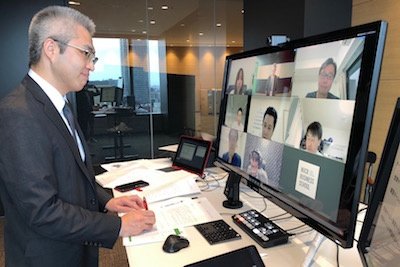Over the weekend, Professor Yasushi Harada, who also served as a member of the Bank of Japan's Policy Board, held a class on "Taxation Issues and Economic Policy" at the Tokyo Campus Studio. The class was filled with heated discussions on how to revitalize the Japanese economy while predicting future changes not only in Japan but also in the world.
In this class, we will try to understand the structure of Japan's taxation system while sorting out the problems and considering how the Japanese economy should be developed through taxes. We will be aware of issues such as the meaning of debt redemption costs, why income distribution is necessary, and the relationship between fiscal and monetary policy, and we will examine how Japanese taxes and government spending can contribute to economic development.
A case study of "Japan: Free, Fair and Global" to learn how to revitalize the Japanese economy
In the 1990s, Prime Minister Ryutaro Hashimoto implemented six major reforms, including fiscal structural reforms, to improve the efficiency of government organizations, reduce costs, and reassign or exempt civil servants. However, the reforms became extremely difficult in the face of serious problems such as the economic downturn, worsening unemployment rate, consumption tax hike, and Japan's aging society. However, the reforms were extremely difficult due to serious problems such as economic stagnation, worsening unemployment, consumption tax hike, and Japan's aging society.
In this "Japan: Free, Fair and Global? case, the students compared the financial-led financial system reforms in the United States in the 1990s and the problems of budget deficits and social security, and discussed and examined the problems of the reforms that Japan made decisions on at that time. As a result, the students became aware of issues related to public finance and social security as parties in the process of understanding the structure of Japan's tax system, and formulated reform proposals for Japan's future economic revitalization from various aspects such as work styles, education, and employment issues.

 Brochure
Brochure
 Information Session
Information Session
 Online Application
Online Application
 MBA Basics
MBA Basics









